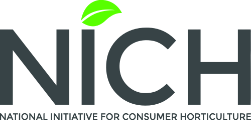






Gardens and nursery plants play an important role in pollinator conservation
Happy National Pollinator Month! June is the time to celebrate our very important garden helpers. Pollination is the important process of moving pollen from one flower to another to fertilize the plant. Birds, bats, butterflies, moths, flies, beetles, wasps, small mammals, and most importantly, bees, are pollinators. They may be small, but their impact is tremendous!
Thirteen years ago, the U.S. Senate’s unanimous approval and designation of a week in June as “National Pollinator Week” marked a necessary step toward addressing the urgent issue of declining pollinator populations. June 22-28, 2020 has been designated National Pollinator Week, and we urge you to spend the entire month of June planting pollinator gardens!
National Pollinator Month in June encourages the planting of pollinator-friendly gardens that use native, non-invasive pollen and nectar-producing plants. Gardens provide pollinators with a diversity of nesting opportunities. In one study, 213 bee species were collected from a garden!
Also, gardens often contain more abundant and diverse bee communities, compared to nearby natural or agricultural areas. Gardens planted with diverse flowering plants attract more species of bees and butterflies, and don’t forget the trees! Many common street trees are important sources of nectar and pollen for pollinators.
Join NICH in celebrating National Pollinator Month and use the social media memes and “Plants Do That for Pollinators” infographic as you communicate with your colleagues.

